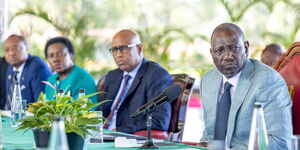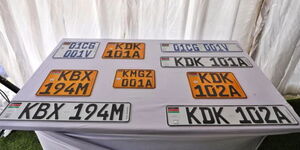A partnership between a charitable non-governmental organization known as Computer for Schools Kenya (CFSK), the Waste Electrical and Electronic Equipment Centre (WEEE Centre), Close the gap and Chinese multinational Huawei has offered an innovative way of teaching digital computer skills in rural Kenya.
The partnership managed to refurbish and unveil the only two 40 inch containers into digital laboratories with a capacity of 20 learners at a go and it can be pulled by a truck across the country.
The digital truck runs on 100 percent solar energy in order to overcome the obstacle of electricity which is a scarce resource in some parts of Kenya where the rural electrification program has not set the ball rolling.
The Digi-Truck is equipped with wireless broadband-enabled by Fixed Wireless Access, laptops and smartphones enabling digital and entrepreneurial skills to be taught aboard and incorporating VR content in digital education.
It also has solar panels and batteries capable of powering it, so it can reach remote rural villages with no electricity.
This truck, after its maiden operation in Mlolongo, Machakos county, has traversed through parts of Kenya such as Nairobi, Laikipia, Embu, Bomet, Samburu, Isiolo, Nyeri, Kericho, Kajiado, Makueni, kitui, Nandi among others.
The main target beneficiaries of this program are the Kenyan Youth mostly Form Four leavers who are eyeing chances at colleges and universities and the business class.
Kenya, despite being the ICT hub of Africa, has less than 50 percent of citizens who do not use the internet and the 75 percent of the Kenyan population that live in the rural areas where ICT infrastructure is less developed.
Classes in this infrastructure are offered at no fee with only registration of Ksh1,000 only to act as a commitment fee for the learners. The programme entails courses on digital literacy, entrepreneurship and proper e-waste management practices.
Speaking to Kenyans.co.ke the head of training for this program at CFSK institute, Martin Mugambi stated that they have so far enrolled over 3,000 students since 2008 when the program was officiated, and upon completion, learners have been provided with certifications.
The impact made on the livelihoods of Kenyan people that have undergone the training is immense ranging from individuals starting up facilities such as cybercafés to the registration of Youth and community-based organizations that aim at starting such businesses.
The World Bank projects that by the year 2030, the demand for digital skills in Africa will reach as many as 230 million people, and as the CEO of CFSK Dr. Tom Musili states that the truck is the only hope of delivering digital knowledge to the rural areas of Kenya as of now - until all parts of Kenya are connected to electricity and facilities such computer labs and computers availed.
Mugambi added that Kenyans in need of these facilities in their areas can reach them through phone numbers and email addresses stated on the CFSK website, and the CFSK institute would send a trainer to organize the structure of how the training would be conducted.
The Digi-trucks are currently at Mombasa County, Bombolulu area to be precise and people who are interested in learning can head there and take advantage of this golden opportunity.












